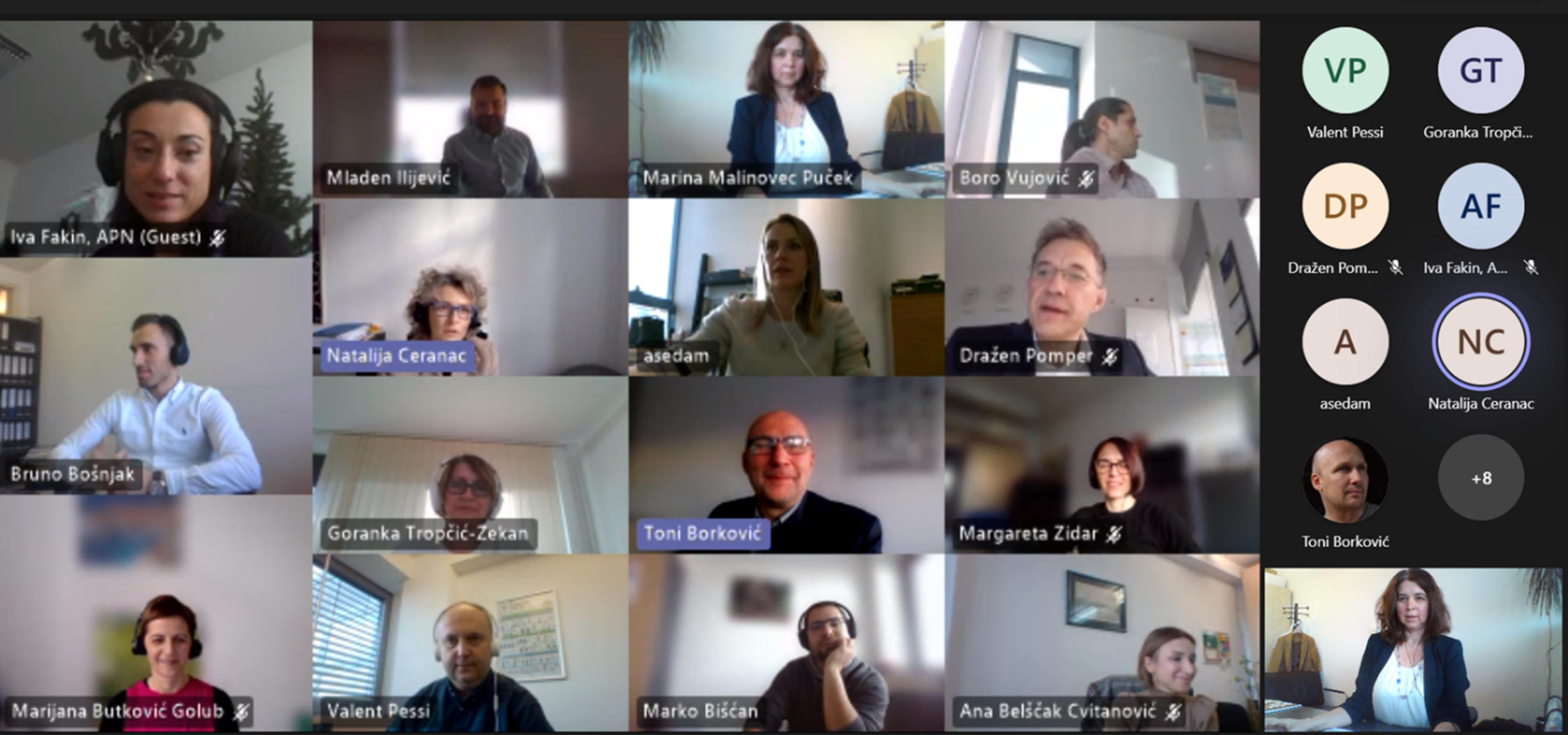Local Advisory Teams (LAT) are the key strategy to actively involve target groups in EUB SuperHub project and to ensure active exchange, direct feedbacks and allow some of the actor’s to easily involve in the project activities. Actually, LATs’ meetings are fundamental to establish liaison with relevant stakeholders.
LATs members will be present during the whole project duration to:
- provide feedbacks on project’s results;
- engage potential end users in the project;
- support the dissemination and communication activities;
- support the exploitation of project’s outcomes.
They has been established in each country involved in the project: Germany, France, Italy, Austria, Croatia, Ireland and Hungary.
Participants of LATs are representatives of the project’s target groups: public and private building owners, professionals, energy providers, property managers, contractors, certification bodies, building users (tenants and owners), local and national policy makers, investors, real estate agencies, etc.
The 1st LATs’ meetings aims to present the objectives of EUB SuperHub and to collect feedbacks and exchange information about the main tasks currently active in Work Package 1 ( Baseline assessment and definition for EuB SuperHub) and Work Package 2 ( EuB SuperHub Framework development).
The meeting were articulated in two main sessions:
Session 1: Stakeholder needs for the next generation EPCs
This session aims is to collect feedbacks about needs and expectations of public institutions and market actors in relation to a next generation EPC. Feedbacks from stakeholders has been collected through specific guiding questions:
- In your opinion, have EPCs helped you in your day-to-day work? Has it been successful?
- How can we make EPC more attractive/ more useful?
- What kind of indicators and information can we include in the EPC, in addition to energy?
- To which extent do you think it is necessary to improve the process of EPCs
- and their quality / credibility, knowing that it could be more expensive?
- How do you imagine an EU building passport? What should it look like and how to use it?
Then feedbacks has been used for improving the framework conditions for fostering the implementation of the next generation of EPCs mainly developped for the public deliverables D1.2 and D1.3 which will be soon shared into the EUB SuperHub web site.
Session 2: EUB SuperHub web platform – adaptation to the needs
This session is strictly related to the framework development, in which is required to investigate possible use case scenarios to ensure that the EUB SuperHub platform one- stop shop and transnational passport will meet all the required different users’ requirements.
If you want to be part of the LAT for the next meeting, please contact the local responsibles:
- Ahmed KHOJA for Germany, ahmed.khoja@hm.edu
- Lilia GALAI DOL for France, lilia.galaidol@cstb.fr
- Adriano FERRERA for Italy, adriano.ferrera@uni.com
- Sabine ERBER for Austria, sabine.eber@energieinstitut.at
- Marina MALINOVEC PUCEK for Croatia: mmalinovec@eihp.hr
- Niall DUNPHY for Ireland, n.dunphy@uss.ie
- Peter GYURIS for Hungary, coordinator@eubsuperhub.eu

